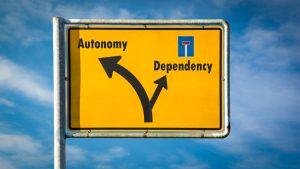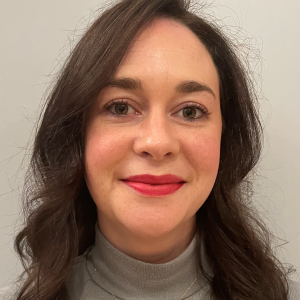In this guest blog post OTC lecturer Niamh Delaney explains why health and social care professionals need to ensure that their knowledge is up date especially those working in services for people with disabilities.
The small places
Human rights are considered guidance in the provision of equal justice, opportunity, recognition of autonomy, dignity and respect for all human beings. Eleanor Roosevelt, the former American First Lady, is often quoted describing how progress towards the realisation of human rights might be achieved. She spoke about the need to acknowledge that human rights begin in the “small places close to home”. Crucially Ms Roosevelt acknowledges the need for “concerted citizen action to uphold them close to home”. She understood that a lofty list of ideals cannot progress to reality without people working together to strengthen the impact of them.
Health and social care professionals
People working in the health and social care sector often work in “the small places close to home”. Many assist people with the intimate necessities of daily life. Facilitating and supporting both everyday choices and bigger decisions. Navigating possible barriers to human rights. Bit by bit supporting people to develop their capacity. Professionals who work in a health and social care area have a diverse range of skills and knowledge but many will not have studied human rights in detail, yet their role in progressing the realisation of rights for individuals is profound.

Human Rights Based Approach to Providing Services
Most services provided by these professionals are obliged through international and domestic law to be based on a Human Rights Based Approach. Irish health and social care professionals are often guided to use principles of rights-based support based on concepts underpinning human rights conventions. These are known as the FREDA principles. English psychiatrists, Curtice and Exworthy developed these principles to assist frontline health and social care professionals to provide rights-based supports in health and social care settings without in-depth knowledge of human rights law.

Human rights are human rights, right?
Some may question the concept of a “rights-based approach.” After all, human rights are human rights, right? This sentiment has been echoed by disability rights activists in Ireland during interviews and consultations. Internationally, disability activists actively participated in the development and negotiation of the United Nations Convention on the Rights of Persons with Disabilities (UNCRPD), which sheds light on areas where individuals with disabilities may face discrimination. For professionals, it is essential to grasp the precise meaning and implications of laws that Ireland has changed to better reflect the UNCRPD.

The impact of realisation of Human Rights in this area
The real impact of UNCRPD can be seen when people with disabilities have control over their own movements, living arrangements, finances, health and support needs and have support to build lives that are meaningful to them with the same opportunities available to them as other citizens. People with disabilities in Ireland still live in places other citizens would not be expected to live. Sharing accommodation with people they would not have chosen to live with. This can impact their safety, their access to their community and civil activity and can sometimes result in financial systems impacting control over their own money. The continued coupling of residential accommodation and support leaves any change to that system a complicated and rarely achieved feat. Systems and services in Ireland often are not currently designed to promote the UNCRPD. In fact, many systems still require health and social care professionals to wriggle around blanket policies and repeatedly reinvent the wheel when it comes to advocating for and with the people they work with. Within this framework the FREDA principles often seem a little too general and unfocused.

Current need for specific Training on new Legislative Frameworks
The Assisted Decision Making (Capacity Act) is an example of Ireland’s intention to become UNCRPD compliant. Professionals will need specific knowledge, focused on system change in relation to this Act. This will promote empowering the people they work with to realise their right to equal recognition before the law. To realise equality in this area has far reaching consequences for other rights. The small places spoken about by Eleanor Roosevelt are where this progression will often occur. Health and social care professionals will use and guide the use of legislative tools effectively, every day for every choice, facilitating the building of capacity and reshaping the systems from the inside, from the small places.
Click on the link below to see how the Open Training College supports professional development around the Assisted Decision Making act:
Assisted Decision Making Online
Enquiries to Conor: [email protected] or call 086 0756580 (Business hours 9am-5pm)
Niamh Delaney provides lecturing and academic tutoring services for the Open Training College in the areas of law, policy, empowerment and advocacy. She spent 17 years working in services providing support for people with intellectual disabilities. She now works as an independent consultant providing training, research and project management services for a variety of organisations.
She chairs the Human Rights and Equality Committee in Peamount Health Care and has contributed to the Guide to the Standards of Proficiency for Social Care Workers published in 2021.
Niamh holds an LLM (Masters of Law) in Contemporary and International Disability Law and Policy and a BA in Applied Social Studies (Disability).

The Open Training College
The Open Training College offers courses in management, social care and continuing professional development. Courses at the Open Training College include applied management, professional development, professional social care, intellectual disability practice and CPD courses. We exist to provide accredited training courses and consultancy services to the human services and non-profit sector.
Our knowledge and expertise:
- Provides people with the skills required to effectively perform their professional roles through courses
- Directly addresses the operational and strategic challenges experienced by organisations within the sector
- Makes a constructive contribution to policy and professional practice
- Offers positive outcomes for service users by encouraging best-practice person-centred processes and competencies
At the Open Training College, our degree level and professional development courses and programmes provide disability and social care professionals with the skills required to deliver effective person centred services. Our accredited certificate, degree and professional development courses and programmes provide people with the knowledge and skills required to manage effectively in a challenging environment. The Open Training College has spent over 20 years working as training experts. In that role we have combined extensive first-line experience with a detailed knowledge of the strategic and operational dynamics of the space.
Established by St. Michael’s House in 1992, our philosophy is, and always will be, shaped by the demands of our sector and the needs of our staff, students, client organisations and service users. We believe that everything we do has to make a difference. To achieve that, it:
- Must be sector-specific
- Has to be practical in every sense of that word
- Remain relevant and meet the highest possible standards of professional practice
- Reflect the realities of people’s lives
This commitment has driven our desire to create a community of learning and professional practice, one that focuses on the acquisition, dissemination and practical application of knowledge and expertise.
- Who we are
- Our relationship with students and the courses we provide
- The kind of consultancy services and partnerships we have built up over the last quarter century











